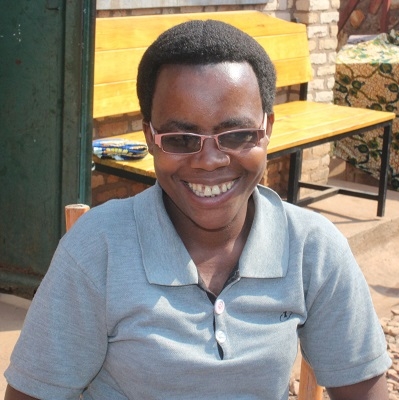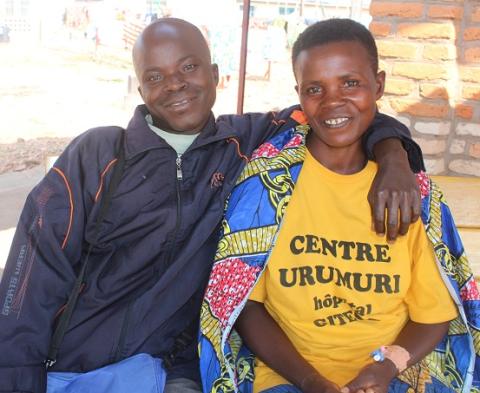"I was forced to live for 9 years in a brick hole in the backyard of my father's house because I had obstetric fistula," says Charlotte Nibigira, a 17-year-old suffered from obstetric fistulas for 9 years. The memory of her 17 years is the worst of his nightmares. Indeed, at 17 years old the young Charlotte Nibigira got married and became pregnant. As soon as she became pregnant, her husband immediately abandoned her. 9 months later, she loses her baby and falls into a coma for 4 days. When she difficultly woke up, another bad news awaits her: she learns that she suffers from an illness she had never heard of:Oobstetric Fistula. Calvary had just begun:

Obstretic Fistula. Photo UNFPA Burundi/Queen BM Nyeniteka
"I went back to my father's home to get help from my mother-in-law, but my daddy took me out of the house and forced me to stay in a hole that contained bricks in the backyard of his house. He said that he could not stand my stench then he put out of the hole those bricksand and the same hole became my home all the time, without help, without hope, I only wanted to die ", says Charlotte. Only 9 years later, after a long journey, she was able to recover her dignity and was cured of this disease after being treated and operated at the Urumuri Center in Gitega Province, Burundi's only center treating this disease.
The immense joy of Charlotte Nibigira is widely shared by 50 other women operated and treated in the months of July and August 2018. This was during a first campaign of repair of women suffering from obstetric fistula which was organized from 9 July to August 4, 2018 by the Ministry of Public Health and the Fight Against Aids through its National Reproductive Health Program (PNSR) and financially supported by the United Nations Population Fund (UNFPA) in Burundi and Médecins Sans Vacances (MSV). International consultants have been invited to this noble task of restoring the esteem and dignity of these women by operating their obstetric fistula.
Although most fistula women report having been abandoned by their husbands and their families because of this morbidity, model men are not lacking. Lino Simpariye was walking 32 km from Bugendana commune to Gitega commune in Urumuri Center to visit his wife Jovite Ndayishimiye who were suffering from obstetric fistula while keeping their other child at home. For him, in this state, the woman needs more than never before her husband's support:

Urumuri Center. Photo UNFPA Burundi/Queen BM Nyeniteka
"I do not understand men who give up their wives because they suffer or fall ill. When we get married, it's for the best and the worst. Today she gets sick but tomorrow it can be me, and I would need her as much as she needs me now "shares Lino Simpariye. He challenged other men to support their wives in this situation and to go through with them.
It should be noted that during this first campaign to repair obstetric fistula, the average age of women treated was 35 years and they were carriers of fistula for an average of 10 years. The same campaign also provided an opportunity to strengthen the capacity of 2 doctors from the Gitega Regional Hospital to repair simple cases of obstetric fistula; 2 doctors from Urumuri Center trained by UNFPA to raise the level of skills in the repair of more or less complex cases; 4 midwives from the 4 hospitals (Kirundo, Mabayi, Muyinga, Nyanza-Lac) which display a large number of this disease on the diagnosis and confirmation as well as pre- and post-operative care of women with this morbidity. At the end of this first campaign, the Minister of Public Health and the UNFPA Resident Representative carried out a visit to evaluate its results. The recommendations made will be followed during the second campaign scheduled for September-October.
By Queen BM Nyeniteka


